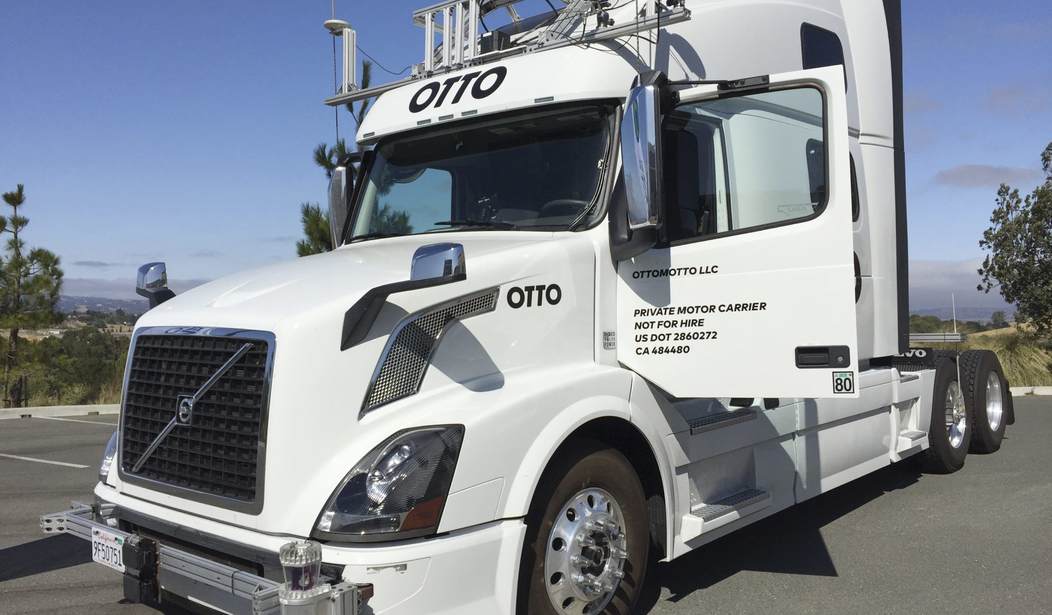Via Reuters:
With its recent acquisition of self-driving truck startup Otto, Uber Technologies Inc.[UBER.UL]is plotting its entry into the long-haul trucking business, aiming to establish itself as a freight hauler and a technology partner for the industry.
Otto plans to expand its fleet of trucks from six to about 15 and is forging partnerships with independent truckers, Otto co-founder Lior Ron told Reuters in an interview. Starting next year, Otto-branded trucks and others equipped with Otto technology will begin hauling freight bound for warehouses and stores, he said.
Uber has already started pitching services to shippers, truck fleets and independent drivers, and the services go well beyond Otto’s initially stated goal of outfitting trucks with self-driving technology. It also plans to compete with the brokers who connect truck fleets and shippers.
Fully autonomous trucks remain years away – some trucking industry experts estimate two decades – and the Otto vehicles are currently manned by a driver and an engineer. But the Uber-Otto efforts include a host of other technologies involving navigation, mapping and tracking, which can be deployed even as work continues on self-driving systems.
An executive at one company told Reuters he had already been approached by Uber about hauling his goods, noting that Uber touted recent hires and advances in trucking technology.
Uber has already shaken up one industry, and the company’s ambition seems limitless. Many are still unimpressed by its long-term vision, however:
While Uber’s brand and financial backing could supercharge Otto’s prospects, industry experts remain skeptical that a Silicon Valley startup with little experience can shake up long-haul trucking.
“The transportation industry is a relationship-backed business,” said Kevin Abbott, a vice president at C.H. Robinson. “There’s a lot more to it than just finding a piece of equipment.”
Abbott noted that Uber is just the latest in a long line of companies that have tried to take the place of brokers, who typically match loads with vehicles.
Uber and Otto also face competition from a growing crop of startups eyeing the industry. Companies such as Transfix, Convoy and Cargo Chief are aiming to unseat traditional brokers by matching shippers with carriers using complex algorithms, while Trucker Path has built a popular navigation app for truckers.
If Uber is successful in trucking, it will be for the same reason it has been in transporting people: lower cost.
“This is really about connecting the dots, connecting the shippers and the carriers,” Ron said. “We are building that on the long-haul piece. Uber, through UberRush and UberEats, built that on the urban piece,” referring to the company’s on-demand delivery services.
Self-driving trucks may eventually ease the driver shortage facing the trucking industry. But even absent autonomous technology, Otto says it could help decrease the cost of trucking goods by more quickly finding freight, mapping more efficient routes and reducing fuel consumption.
“In Uber, you press a button and an Uber shows up after three minutes,” Ron said. “In freight … the golden standard is that it takes (the broker) five hours of phone calls to find your truck. That’s how efficient the industry is today.”
The company isn’t merely ambitious, it gets to work on its ambitions pretty quickly. All of this from what started as simply a cheaper alternative to taxi cabs. Now we’ve got Uber Eats and real-world tests of autonomous driving technology.
Taxicab companies still just have taxicabs.
Amazing what taking off the regulatory shackles can do to a business, isn’t it?










Join the conversation as a VIP Member